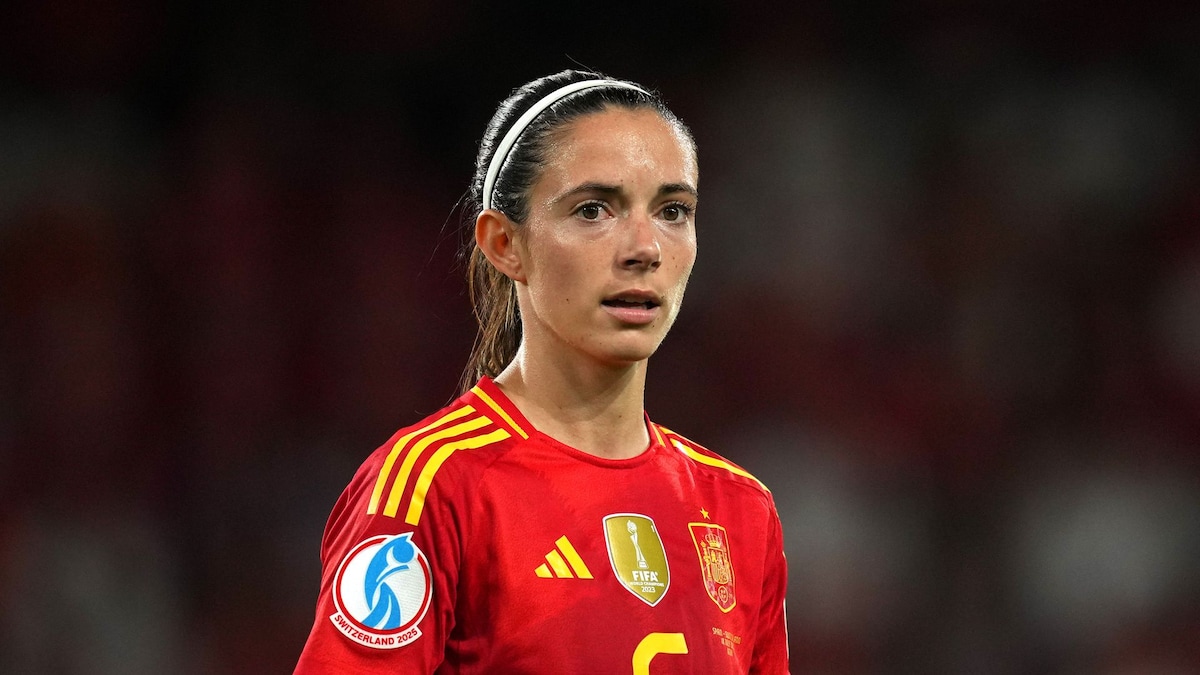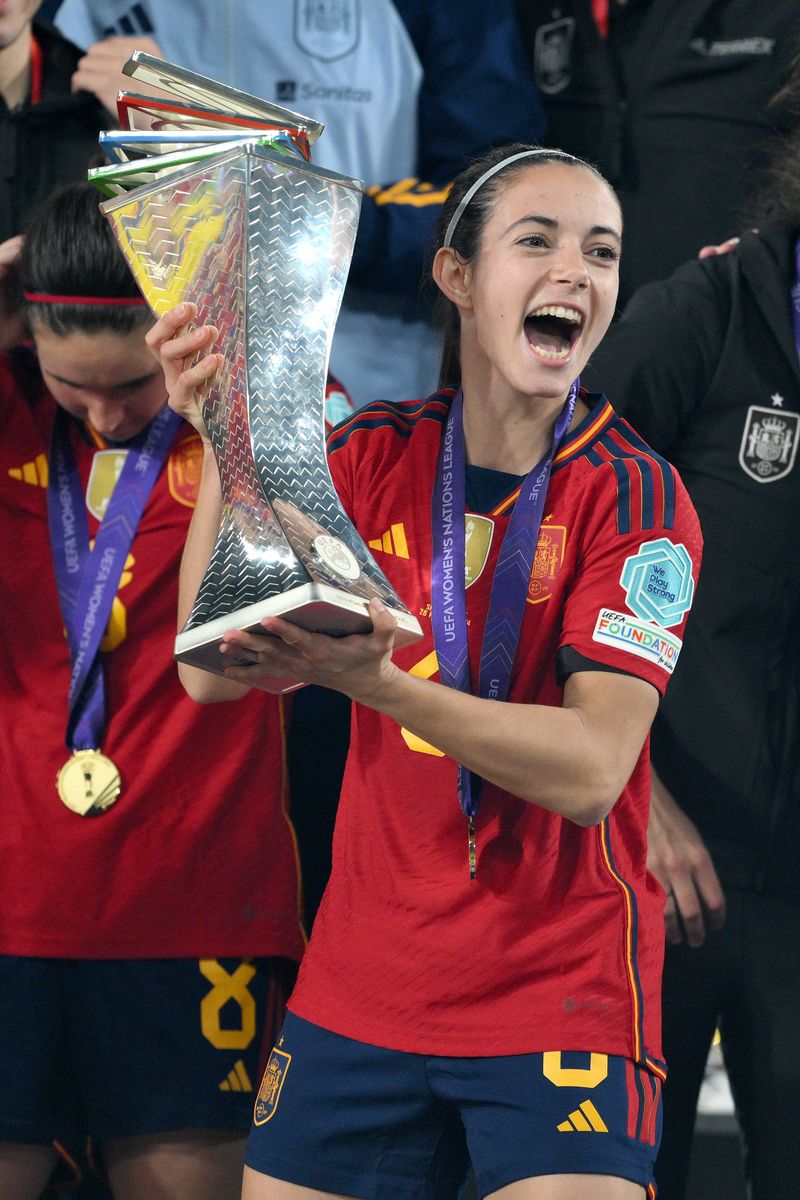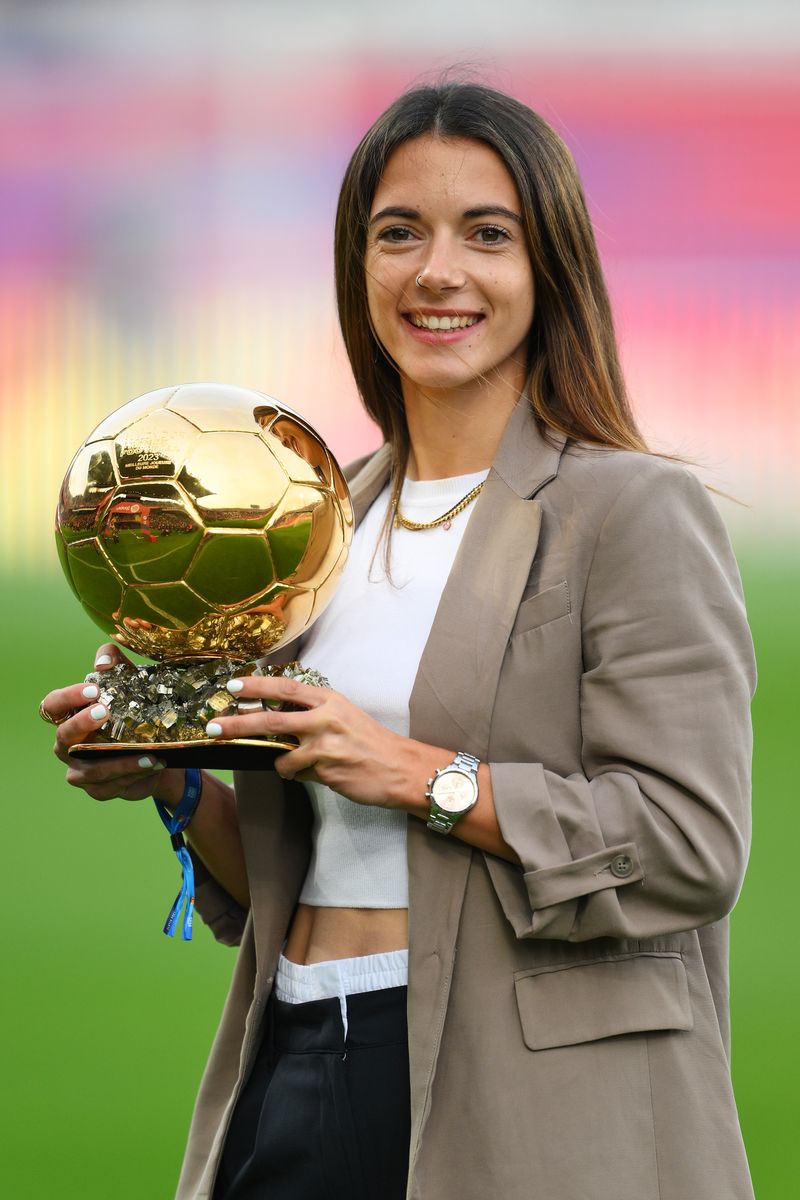Aitana Bonmatí is now one of the most popular personalities in international sports. Born in 1998 in Sant Pere de Ribes, Barcelona, she plays midfield for FC Barcelona and the Spanish national team, with whom she won the 2023 FIFA Women’s World Cup and the 2023–2024 Nations League. During that same period, she earned the highest individual honors: two The Best awards and two Ballon d’Or titles. Her performance on the field, along with her social commitment, led the BBC to name her one of the 100 most influential women in the world.
From hospital stay to leading Spain to the Euro final
Bonmatí’s road to success at Euro 2025 has been far from easy. Just days before the tournament began, she was hospitalized with viral meningitis after coming down with a high fever on June 27. She missed Spain’s friendly against Japan and watched the match from her hospital bed. Luckily, she was discharged on June 29 and quickly rejoined the team in Switzerland. She eased back into action, coming off the bench in the opener against Portugal. By Wednesday, she had fully recovered.
Spain took down Germany in extra time—a team they had never beaten before—thanks to a goal from Aitana. Now they’re in the final for the first time and will face England, hoping to cap off an incredible journey.
From La Masía to the top of international soccer
Aitana’s professional career began at a very young age. She took her first steps in soccer playing with boys on local teams like CD Ribes and CF Cubelles. For years, she was the only girl, but that never stopped her ambition. At 13, she joined La Masía, Barça’s youth academy, and her rise since then has been meteoric. Today, she has five league titles, five Copa de la Reina trophies, and four Spanish Supercups. On the international stage, her name is already a symbol of excellence.
“There were days when I wanted to give up, but I always pushed myself harder,” she recalled in an interview, reflecting on the early days of a career that continues to break records.
How Aitana Bonmatí’s last name helped change Spanish law on surnames
The last name she’s known by isn’t a coincidence. Her parents, Rosa and Vicent, wanted her to carry her mother’s surname first from the moment she was born. At the time, the law didn’t allow it, so her legal name was Aitana Conca Bonmatí. Her parents’ persistence in trying to reverse the order of the surnames contributed to a legal reform that took effect in 2000, allowing any family to choose which surname comes first. “This is about equality,” she has said on multiple occasions.
Her family has always been her biggest support. Her parents are Catalan language and literature teachers, and from a young age they instilled in her a love of reading, a passion she still holds onto. “I’m not sure if my parents’ house is a home or a library,” she once shared.
She’s also shown a strong interest in travel and exploring other cultures. Her social media features getaways to places like New York, Vietnam, Zermatt, Berlin, and Florence. She uses her time off to discover the world and take a break from soccer, though she never loses sight of her education—remaining committed to learning and personal growth.
A strong voice for equality
Beyond the trophies, Aitana Bonmatí has used her platform to speak out on issues that resonate with an entire generation. After the non-consensual kiss from Luis Rubiales to Jenni Hermoso, she publicly condemned the incident: “As a society, we must not allow abuse of power in a professional setting or any form of disrespect.”
Her message, focused on respect and justice rather than controversy, has been praised both inside and outside the world of sports. She is one of soccer’s most respected voices, not just for her talent but also for her integrity and sense of duty.
Read the full article here












